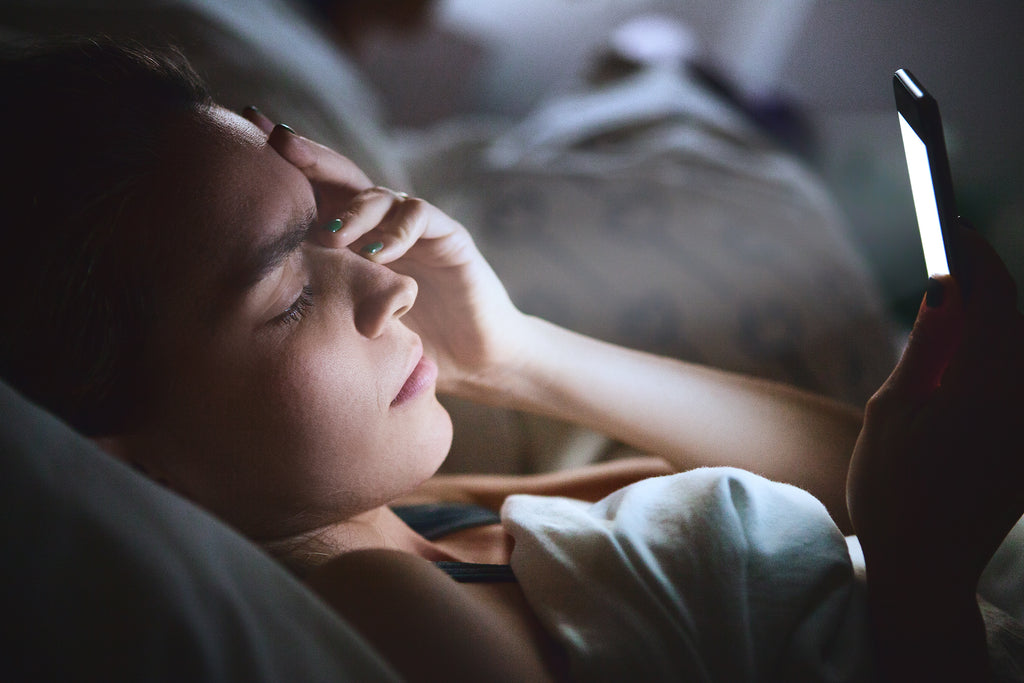Why Screentime Robs Your Sleep, Explained
Posted by JOANNA

Did you know that reading this right now will affect how well you sleep tonight? You may be saying, I’m reading this in the morning/afternoon, so what?—but it doesn’t matter to your melatonin!
We’re talking about the blue light coming from the screen on which you are reading this. Also about the blue light coming from all indoor light sources, such as LED lights, LED televisions, and overhead and compact fluorescent light bulbs. You may have heard to avoid screen time before sleep, but why?
Blue light refers to the length of the wavelengths that these artificial light sources create. Blue light wavelengths are the shortest of the light spectrum, and it’s because of this that it causes so many disruptions. These wavelengths flicker, causing glare, eyestrain, and changes in the sharpness and clarity of our vision.
These pesky blue lights emitted from screens and artificial lights disrupts your brain’s melatonin production because it stimulates photoreceptors in the retina. Aside from also causing oxidative stress, the blue light is absorbed by the retina itself, which causes thermal stress. When it stimulates the retinal photoreceptors, it decreases melatonin production.
Blue light can cause your natural sleep-wake circadian rhythm cycle to be off by as much as 3 hours after being exposed for just 6.5 hours; not even a full workday for most of us!
Two hours of working on a computer screen is all it takes to produce eyestrain and fatigue, which is a serious downer for your productivity. Try using blue-light blocking glasses (which come in all shapes and sizes and feature amber lenses which block the blue light) to relieve the stress of our technological world.
If you’ve got serious trouble sleeping or can’t avoid the screens late at night, you can supplement with our Melatonin drops which go under the tongue for quick and efficient help to get to sleep quicker. They’re great for a reset if you’ve been traveling or suffering from jet-lag or trying to get used to a new sleep schedule, too.
Now, go take a screen break and spend some time in bright sunlight to get your rhythm back!

